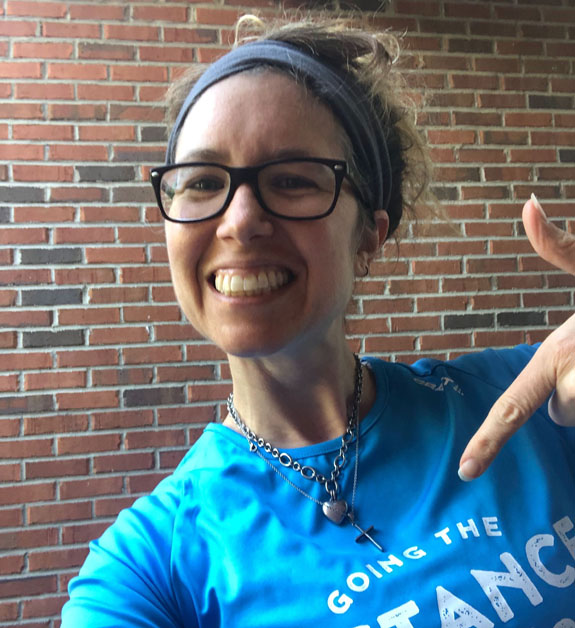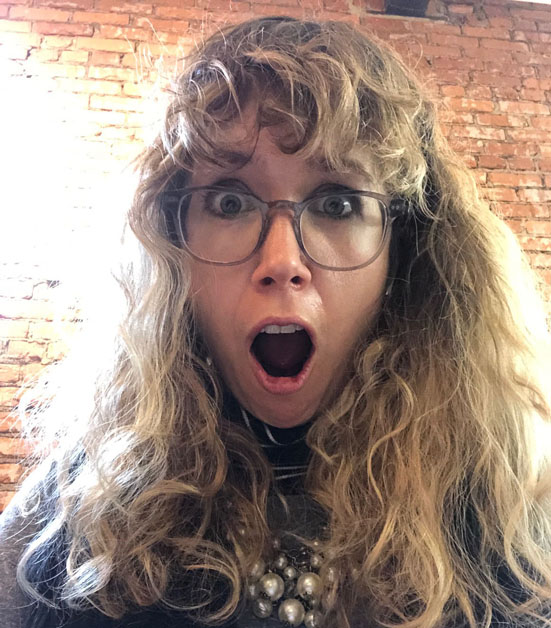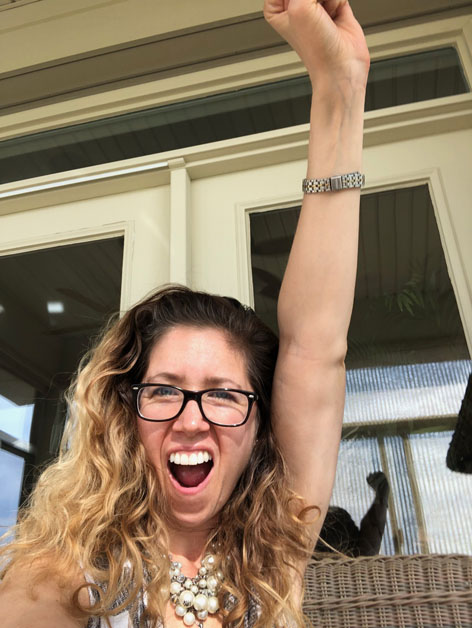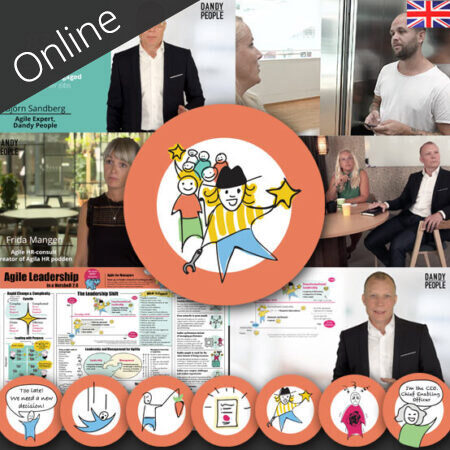– And why on earth am I even doing this???
I just took on the most challenging client–MYSELF.
Inspired by friends who are marathoners, I decided to cultivate what I’m calling a Marathon Mindset. I’m coaching myself towards achieving increased flow in the presence of variability. My aspiration is to emerge from this COVID-19 crisis a better person. Through this process, which involves training for an actual marathon, I’m learning that my own barriers and obstacles to “become a marathoner” are similar to those experienced by organizations wanting to “become agile”. This aha moment was unexpected, but transformative as an Agile Coach. I now believe the Marathon Mindset is the Agile Mindset because it simultaneously fosters both stability and agility through continuous and incremental evolution instead of a big bang transformation. Below I share some insights into what I’m learning for the benefit of Agile change agents everywhere.

The Marathon Mindset is the Agile Mindset
I’ll start with a definition. For me, a Marathon Mindset is a balanced mindset characterized by resilience and perseverance where you’re never really done, roadblocks are inevitable, recovery and celebration are critical, and focusing on what you can do right now to move the needle is key (and pivot as needed). The personal WHY that is fueling me is to become a person who transforms this mindset into a lifestyle. My conviction is that it’s not enough simply to articulate our aspirations or objectives. We need to know our WHY.
Right now, I’m starting with a half marathon and will work my way up to the full. This is huge for me. Never before have I been able to keep any consistent exercise routine because I’d get impatient and frustrated with the process. Getting sweaty, out of breath, and in physical discomfort was something I could use willpower to endure for a season but never beyond a few months. I would ultimately fail like many corporate initiatives I’ve seen in my HR career. Ouch.

How I’m tackling this challenge
As a first-time runner with a passion for behavioral science, my development plan is focusing on both the physical and mental aspects of transformation. I’m currently learning more about running while finishing my credentials as an ICF certified coach specializing in behavior design. The goal is to use what I learn to become a better Agile coach for myself and others.
The certification part of my ICF and behavior science training involves me getting coached and coaching others. These sessions revealed that the self-imposed barriers and obstacles hindering my transformation were the same as those hindering many organizations:
- I had a Sprinter Mindset. I defined success in terms of sprints completed despite roadblocks. Looking back, I could have been more focused on what I’m learning (and who I am becoming) because of the roadblocks. Moreover, I was not giving myself time for recovery and celebrating small wins, nor was I strategic. My daily activities were not necessarily collectively moving my needle towards my personal long term goals and objectives. Although I wanted to live a full life and add massive value to the world, I wasn’t setting myself up long term sustainable success.
- I suffered burn out. I was viewing life as a series of sprints to win at any cost. As a result, I accumulated all sorts of relational and physiological debt. More time was spent on work than nurturing relationships or practicing self-care. Just like how clean architecture and code results in lasting quality and speed of development (but may take longer in the short term), I now want to design and create a life that results in lasting quality and speed of mindful execution. I want to focus on developing my features and capabilities. Pacing myself to cultivate the marathon mindset and discover my unique cadence will help me to go the distance, both physically and mentally. Moreover, my batch sizes for personal growth were too large. I was trying to work on transforming large behaviors all-at-once instead of taking an incremental and iterative approach to transformation.
- Transforming aspirations into OKRs and finding my WHY were not enough… As with many organizations wanting to change, I am intimately familiar with the limits of willpower and the torture of making myself do things I don’t want to do (but should). I’ve also experienced the crash and burn that comes from unpredictable waves of motivation. Traditional approaches that rely on willpower, motivation, and repetition to sustain the process don’t work for me, and I’m finding that I’m not alone. Fortunately, researchers like BJ Fogg from Sanford are finding that lasting behavior change does not come from actionable OKRs, well-articulated WHY statements, motivation, or even repetition. This requires the art and science of celebrating small wins, differentiating between decisions and habits, and ensuring sufficient prompts and abilities are in place for the new behaviors to take root.
Although I’ve spent the last two years studying behavior change, I hadn’t applied it to myself in an area as big as cultivating an entirely new mental and physical lifestyle. The great news is that I’m finding massive success. If you’re an Agilist, I encourage you to hire yourself as a coach through a massive transformation process. Perhaps join me in training for the Stockholm Half Marathon! I guarantee that you’ll become a better Agilist.

In my next blog post I’ll share the ways I’m using from behavior science that can be generalized to an individual, team, or organizational setting.


